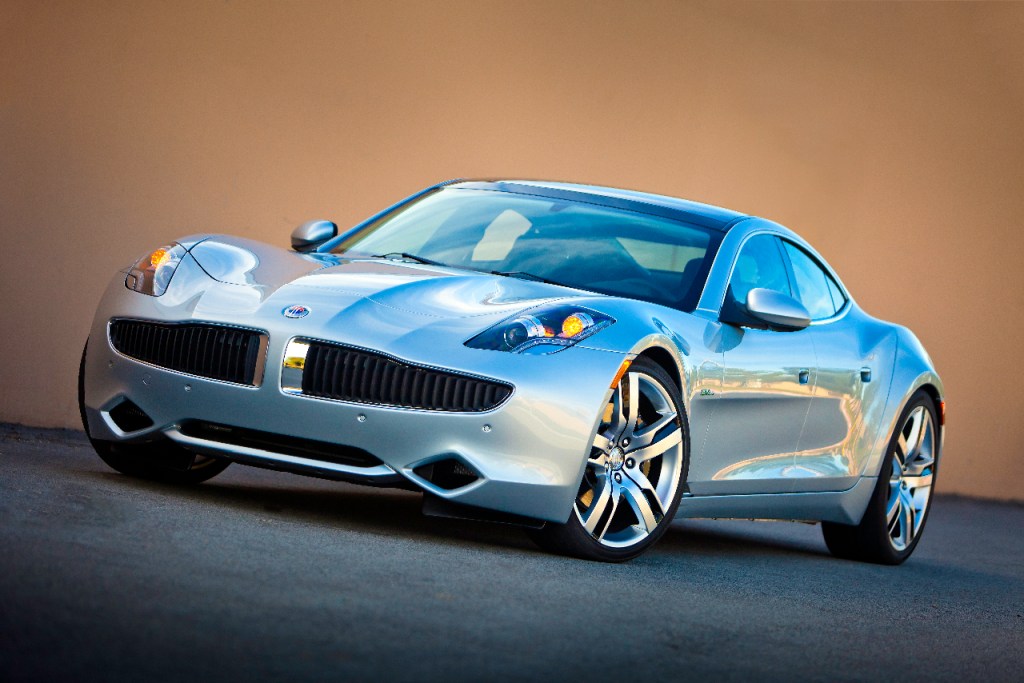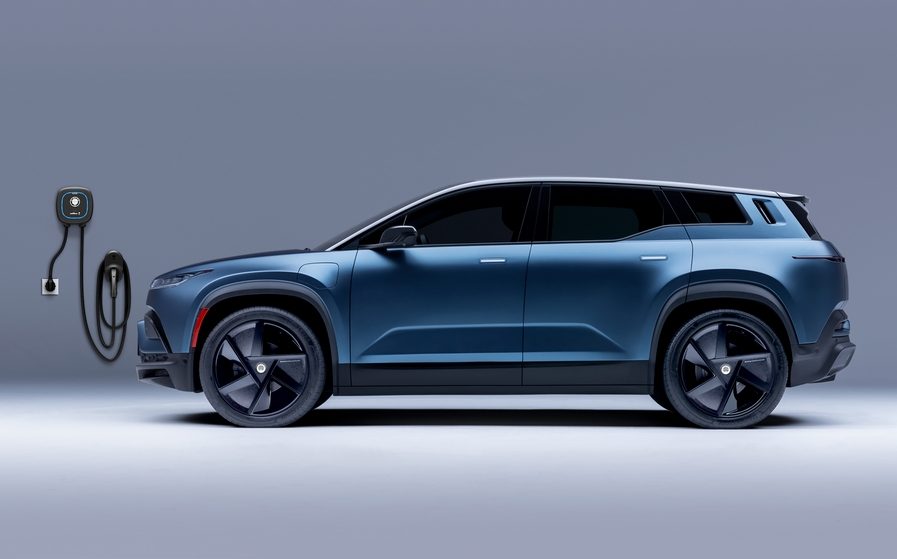Fisker reportedly set to file for bankruptcy
Founder has been down this road before
American electric car maker Fisker is appointing lawyers to help prepare a potential bankruptcy filing, according to reports in America.
Insiders told the the Wall Street Journal that the manufacturer has hired financial adviser FTI Consulting and the law firm Davis Polk to help with a possible bankruptcy filing.
California-based Fisker started out in 2007 as the brainchild of Danish entrepreneur Henrik Fisker and became one of the first manufacturers to bring a plug-in hybrid car to market when the Fisker Karma was launched in 2011.

Although the Karma was innovative, the company was plagued by production difficulties and filed for bankruptcy in 2013. The Karma design was bought by a Chinese company that founded Karma Automotive.
Resurrected to make pure EVs
In 2016, however, Henrik Fisker resurrected the Fisker brand with the establishment of Fisker Inc, building pure-electric cars.
The company has been marketing a new electric SUV called the Ocean, and it showed off the Alaska pick-up truck last year.

Earlier this month, however, the company saw its shares slide by almost 47 per cent after the company signalled a pause in investments in future projects. Reuters reported the brand had warned 2024 would be a “difficult year”, with sales forecasts looking meagre.
The company has since reportedly laid of 15 per cent of its staff.
Reuters said Fisker had been in “advanced talks” with Nissan to secure investment from the Japanese car maker, with access to the underpinnings of the Renault-Nissan Alaskan pick-up central to the deal. However, whether that comes to fruition remains to be seen.
Fisker is the latest in a line of electric vehicle manufacturers to appear downcast, with fellow Californian manufacturer Rivian predicting slow production, as is Lucid.
While none of those firms are currently selling vehicles in the UK, there are concerns in the industry that slowing growth in demand for electric vehicles could become an issue for all manufacturers. Commentators point to weak demand for electric cars from private buyers and heavy depreciation as signs that the market may not be as healthy as hoped.
That said, the situation is different in other markets. Last year in Norway, more than 80 per cent of new car sales were electric. Yesterday, the Financial Times reported that a car factory set up by Hyundai to produced combustion cars was sold in December for less than a quarter of its $1.15bn investment cost because Chinese consumers have switched to EVs so rapidly.
In the UK, registrations of electric cars increased 21.8 per cent compared with February 2023, on the back of strong fleet (company car) demand, though sales to private buyers declined year-on-year.
Incentives needed
The Society of Motor Manufacturers and Traders (SMMT) said that private buyers account for fewer than one in five (18.2 per cent) of all new electric passenger car sales in the UK.
Experts believe that is due to a number of factors but called on the government to reintroduce incentives such as the plug-in car grant, and to reduce VAT on public recharging from 20 per cent to 5 per cent, which would bring it in line with the home energy taxation level.
According to the SMMT, the market is “entirely sustained by fleets,” and the body’s chief executive said government incentives would be key to stimulating growth in demand for private customers.
”Tackling the tax barrier as the market embarks on its busiest month of the year — March — would boost electric vehicle demand, cutting carbon emissions and energising the economy,” said Mike Hawes. “It will deliver a faster and fairer zero-emission transition, putting Britain’s electric vehicle ambition back in the fast lane.”
As yet, the government has been slow to incentivise electric vehicles, with industry bodies ruing several omissions in chancellor Jeremy Hunt’s recent spring budget. The RAC described the announcement as a “missed opportunity” to stimulate demand for electric cars.
Whether the troubling plight of some electric vehicle start-ups changes that remains to be seen.
Related articles
- If you were interested in the possibility that Fisker is going bankrupt, check out our review of the Tesla Model 3
- Dacia Spring confirmed as Britain’s cheapest new electric car with prices from £14,995
- Chinese electric cars may come under scrutiny in the UK
Latest articles
- Aston Martin Valkyrie AMR-LMH hypercar hits track ahead of 2025 Le Mans challenge
- Porsche has begun testing the electric Cayenne
- Cupra Leon 272 eHybrid 2024 review: Bigger battery, better tech … but is it a Cupra?
- Porsche 911 GTS 2024 review: Hybrid heresy or more Stuttgart genius?
- Extended test: 2023 Vauxhall Astra Sports Tourer GS PHEV
- Ford Capri revival has faced a lot of flak… but are buyers put off? Here’s what visitors to the Festival of Speed had to say
- F1 2024 calendar and race reports: What time the next grand prix starts and what happened in the previous rounds
- ‘No timeframe’ for how long Volvo’s returning estate cars will be on sale in UK
- Kia Picanto 2024 review: Updates add spice to cute Korean city car














